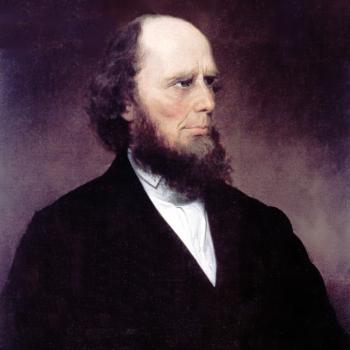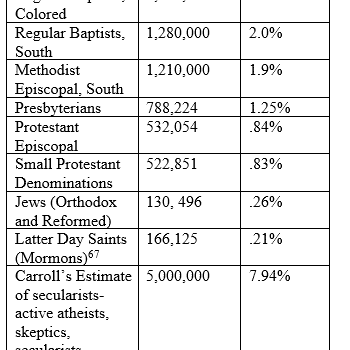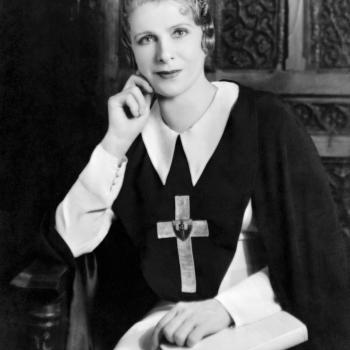The other day I was musing about American church life and the many, many churches I have had to do with (pastoring, serving, attending, speaking, watching, etc., etc.). I felt a strong impression that the Christianity of my childhood and youth has by-and-large disappeared. Something else called “Christianity” has taken its place. I kept my musings to myself because they seemed likely to be the nostalgic musings of an old man. The desire for “the good old days.”
Then, a few days later, a young pastor, in his early thirties, asked me over coffee if I sometimes feel like American Christianity has changed so drastically that it’s something different than it was. He and I share a pretty passionate love of evangelical Christianity and we both knew we were talking about that–American evangelical Christianity. I was stunned and taken aback. Maybe my musings were not just the nostalgic musings of an old man remembering “the good old days.”
He wasn’t just picking up on something I said; his question popped “out of the blue,” so to speak. Of course I told him that, yes, I often feel that way. So does he.
Perhaps the best way to describe it is as a paradigm change. What was it then and how is it different now? I can only give a few examples.
First, you need to know and believe me (or not) that I grew up “in the thick” of American evangelical Christianity partly because of my family. Later, when I was an adult, I became historically and theologically conscious of American evangelical Christianity. And I became something of a scholar on the subject.
When I was young…
Common among American evangelical Christians was a very strong emphasis on world missions. Most of the churches I knew about, personally, directly, or through my many relatives and acquaintances (most of my close school friends were evangelical Christians of various denominations), set aside one Sunday every quarter, if not every month, as “Missions Sunday.” Offerings were taken for missions. A missionary spoke. A slide show or films was shown. Young people (and others) were urged to “answer the call” to the “mission field.” The hymns sung were about missions (e.g., “Hear the Lord of harvest sweetly calling….). I was terrified that God would call me to be a missionary to some place where there were lots of snakes. Our church and many, many others had “missionary barrels” in the church foyer. When they were full of dry goods (mostly canned foods), they were sealed up and shipped to a family of missionaries outside the U.S. I well remember going with my parents to the train station with a group of other evangelical Christians to greet a returning (“on furlough”) missionary and his or her family.
Common among American evangelical Christians was a very strong emphasis on the cross of Jesus Christ with “passion plays” and sermons and songs about the crucifixion but with a strong emphasis on why Jesus died on the cross–to save us from our sins if we repent and trust in him. Altar calls or at least “invitations” to accept Jesus Christ as savior and lord were common–in church and not only in some evangelistic crusade.
Common among American evangelical Christians was a very strong emphasis on the second coming, the return of Jesus Christ and on heaven and hell. And this was the case not only among dispensationalist evangelical churches.
Common among American evangelical Christians was a very strong emphasis on conservative lifestyle, on simple living so that you could give more to the church and to missions, on avoiding gluttony, “social drinking” (of alcohol), tobacco smoking, sex outside of marriage, pornography, immodest dress (both boys and girls, men and women!), “worldliness” in general. Most American evangelical Christians went slightly overboard on some of these lifestyle differences (from “the world”) such as “no dancing.”
Common among American evangelical Christians was a strong emphasis on “witnessing.” Most evangelical churches had stacks of “gospel tracts” to take home and hand out to friends, neighbors and acquaintances. Classes were held on “personal evangelism.” Evangelical Christians of all denominations flocked to hear Bill Bright or some other evangelist talk (in my case on film) about how to use “The Four Spiritual Laws” tract to evangelize “the lost.”
Common among American evangelical Christians was a strong emphasis on “family devotions,” “quiet time,” developing a stronger “personal relationship with Jesus,” reading devotional books, holy living in many facets and dimensions, standing out in school and work place because of the “joy of knowing Jesus.”
Common among American evangelical Christians was Sunday School (all ages) with Bible study “quarterlies” to be read before Sunday morning to prepare for “the Bible lesson.” Bible memorization, Bible quizzing, choir songs, trios and quartets, gospel music, Christian radio.
As I think back through the decades of my life in American evangelical Christianity I realize that all that fairly quickly left the scene, so to speak, of American evangelical Christianity, sometime in the 1970s into the 1980s and was pretty much gone (except perhaps in the South and especially small towns) by the 1990s. I have not seen or heard of any of it in any evangelical church I have attended or visited since then.
So what has taken the place of all that? What is the new paradigm? I can only think it is “entertainment church.” Even the stodgy and intellectually-inclined magazine “The Economist” recently published an article about this new paradigm of “church.” I call it “concert style” worship and Christianity centered around feelings and success in living.
*Note: If you choose to comment, make sure your comment is relatively brief (no more than 100 words), on topic, addressed to me, civil and respectful (not hostile or argumentative), and devoid of pictures or links.*

















